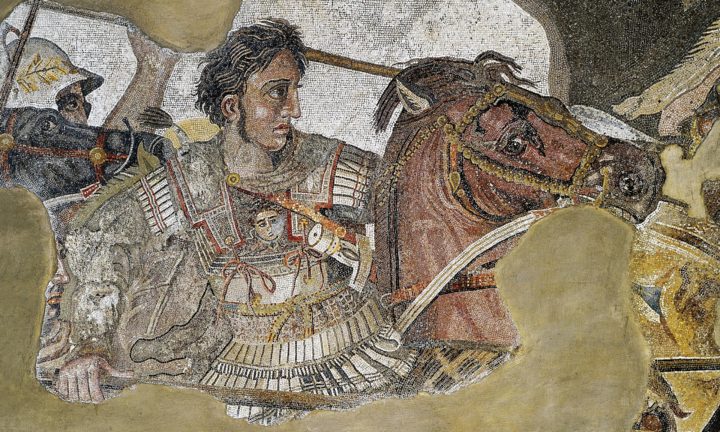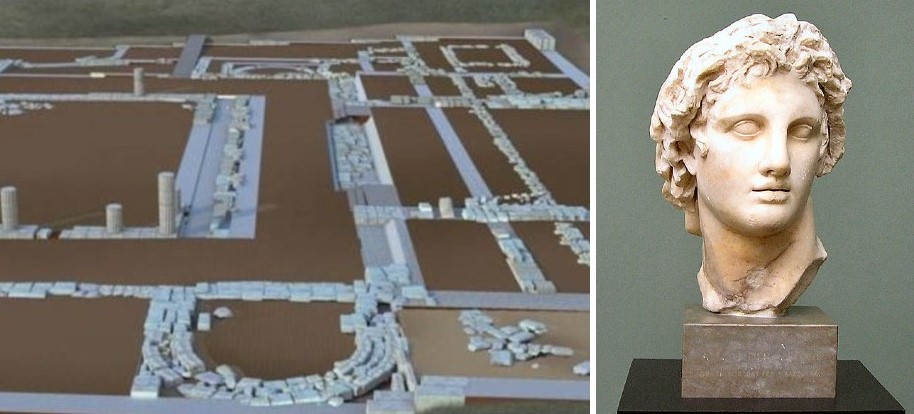Greece’s Ministry of Culture estimates that the palace in Pella where Alexander the Great was born will be open for visitors next summer, according to an Athens-Macedonian News Agency (AMNA) report.
When the relics of the building were excavated in 1957, no one knew it was the palace where the future King was born. Nearby there was an arena where Alexander played sport with the children of the aristocracy and exercised in a huge swimming pool.
“The palace had a public character and inside was the room where the banquets took place, or the room of the throne, if I am allowed to use this expression,” the director of Pella Ephorate of Antiquities, Elisavet Tsigarida, told AMNA.

The Ephorate Director emphasised that the works, funded by the European Union, are currently in full swing and notes that the site could be open to the public in the summer of 2021 if everything goes smoothly.
Visitors will be able to see the palace floor plan at the foundation level while the goal of the Pella Ephorate of Antiquities is to present a digital tour at the visitor center which is expected to be built in 2023.
In the center, visitors can watch a digital representation not only of the palace where the Macedonian king was born, but of the building ensemble which consisted of seven huge buildings with inner courtyards, corridors, stairwells and galleries that were connected to each other.
“The total area is around 70 acres. These dimensions can be understood if we take into account the fact that Pella was the capital of the Macedonian Kingdom at the time. The original palace was smaller, but it was expanded after the campaign of Alexander the Great,” Tsigarida said.

“The period from 320 to 250 BC was a time of great prosperity for Macedonia, while the wealth of the palace was also known. Let’s not forget that throughout the third and second century BC, Pella was the center of the Macedonian Kingdom, one of the most important states of the time.”
These were, after all, the reasons why the palace was looted by the Romans when the Macedonians were defeated in 168 BC. The victorious army went straight to Pella.
“The Romans did not destroy the city but looted the palace, where of course, there were treasures. They even took the king and his family as slaves in Rome, showing their triumph,” Tsigarida explained.
The fate of the royal family was very hard while the palace was no longer in use. However, the city continued to exist during Roman times, as the Egnatia Highway, a road that connected the east and west, passed through it.
